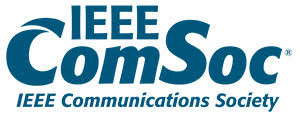Future wireless access is going to comprise heterogeneous, multi-tier, programmable, and scalable architectures. Their adoption relies on highly resource-demanding services under user mobility.Stringent, key performance indicators have to be met while at the same time the efficiency of the network will take its toll on the infrastructure and running costs.
For networks beyond 5G, where multiple wireless heterogeneous (both in terms of network elements and in term of access technologies) networks will co-exist in the same geographical area, these mechanisms will be of key importance not only for a single network operation but for the smooth networks co-operation, the optimal joint use of resources and the provisioning of high quality services to the users.
The target of this SiG is to bring together researchers focusing on modeling and optimization of resource management within the context of heterogeneous wireless networking. The groups interests span:
- Access network architectures and protocols optimization for future wireless networks
- Reliable and optimized spectrum sharing
- Programmable design and on-line optimization
- Co-existence issues of future heterogeneous networks
- Resource management mechanisms for future heterogeneous networks
- Optimized and robust dynamic spectrum access
- Heterogeneous network simulation models and techniques
- Performance modeling of heterogeneous networks
The expected core activities of the SiG will be devoted to:
- foster interaction among experts in modeling and optimization of resource management of heterogeneous wireless networks,
- provide an open forum for information exchange among them, and facilitate new collaboration activities between them.
Leaders: Vangelis Angelakis and Prof. Björn Landfeldt

